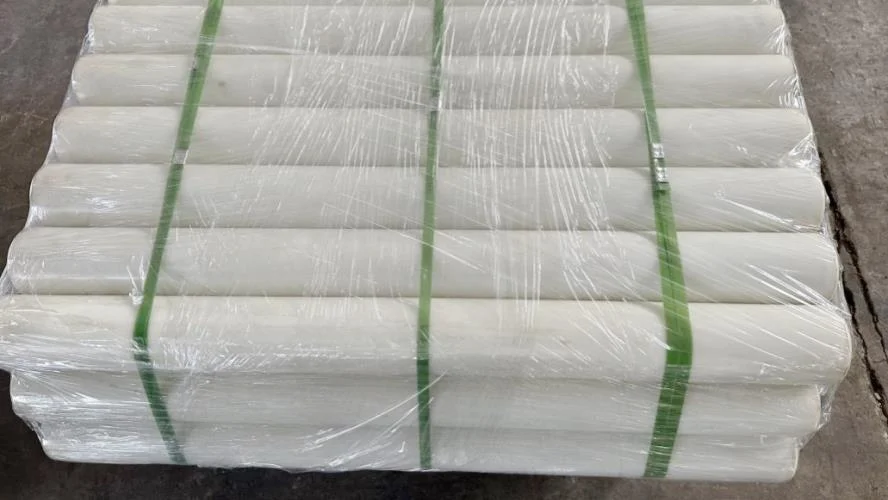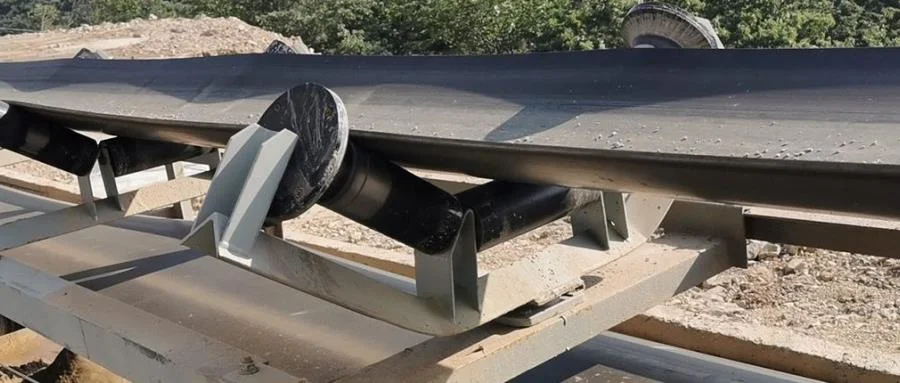Conveyor rollers are integral components of modern industrial systems, facilitating the efficient movement of goods across various production and processing lines. Their growing popularity stems from their ability to enhance productivity, reduce manual labor, and streamline operations. Conveyor rollers are used in a wide range of industries, including food processing, pharmaceuticals, and general manufacturing, where they help transport items smoothly and efficiently. The versatility of conveyor rollers, combined with advancements in materials and design, has led to their increased adoption in settings that demand reliability and precision. Understanding the characteristics and applications of conveyor rollers is essential for industries looking to optimize their material handling processes and maintain high standards of operational efficiency.
Characteristics of Conveyor Rollers
Conveyor rollers are designed with specific material properties and advantages that make them suitable for a wide range of industrial applications. Understanding these characteristics is crucial for selecting the right roller for your needs.
Material Properties:
Conveyor rollers are made from various materials, each offering unique properties that cater to different industrial requirements. Common materials include nylon, steel, stainless steel, plastic, and rubber.
Nylon: Nylon conveyor rollers are lightweight, durable, and resistant to chemicals and moisture. They are ideal for environments where corrosion resistance and low maintenance are important. Their smooth surface reduces friction, ensuring efficient movement of goods.
Steel and Stainless Steel: Steel rollers are known for their high strength and load-bearing capacity, making them suitable for heavy-duty applications. Stainless steel rollers offer additional benefits such as corrosion resistance, making them ideal for environments exposed to moisture or corrosive substances.
Plastic: Plastic rollers are lightweight and resistant to corrosion. They are suitable for applications where weight reduction is critical and where rollers will be exposed to moisture or chemicals.
Rubber-Coated: Rubber-coated rollers provide a cushioning effect, reducing noise and vibration. They are ideal for handling delicate items or where noise reduction is essential.

Advantages over Other Materials:
Conveyor rollers offer several advantages over other materials used in material handling and conveyor systems:
Durability: Conveyor rollers, especially those made from nylon and steel, are highly durable and can withstand significant wear and tear. This durability reduces the frequency of replacements and lowers maintenance costs.
Corrosion Resistance: Materials like nylon and stainless steel provide excellent resistance to corrosion, making them suitable for use in wet or chemically harsh environments. This resistance ensures a longer lifespan and reliable performance.
Lightweight: Nylon and plastic rollers are lightweight, which reduces the overall weight of the conveyor system. This feature makes installation and maintenance easier and less labor-intensive.
Low Maintenance: Conveyor rollers made from high-quality materials require minimal maintenance. Their resistance to wear, chemicals, and moisture reduces the need for frequent servicing, saving time and costs.
Smooth Operation: The smooth surface of nylon and plastic rollers reduces friction, ensuring the efficient and quiet movement of goods. Rubber-coated rollers further enhance smooth operation by dampening noise and vibration.
The material properties and inherent advantages of conveyor rollers make them indispensable in various industrial applications. Whether the need is for strength and durability, corrosion resistance, or lightweight and low-maintenance solutions, conveyor rollers provide versatile and reliable options to meet the specific demands of different industries.
Applications of Conveyor Rollers
Conveyor rollers are essential components in various industrial sectors, each with specific needs that these rollers can meet due to their versatile material properties and design. Here’s a detailed exploration of their applications:
Food Processing:
Conveyor rollers are extensively used in the food processing industry, where hygiene and cleanliness are paramount. The properties that make them ideal for this sector include:
Hygienic and Easy to Clean: Materials like stainless steel and food-grade plastics are commonly used for conveyor rollers in food processing because they can be easily cleaned and sanitized. This is crucial for preventing contamination and adhering to stringent food safety regulations. Stainless steel rollers, in particular, resist corrosion and can withstand frequent washdowns with cleaning agents, ensuring a sanitary environment.
Resistance to Moisture and Chemicals: The food processing environment often involves exposure to moisture and various chemicals. Nylon and stainless steel rollers are resistant to these elements, maintaining their integrity and performance even under harsh conditions. This resistance ensures that the rollers remain reliable and effective, contributing to efficient and safe food processing operations.
Pharmaceutical and Medical Industries:
The pharmaceutical and medical industries demand high standards of cleanliness, chemical resistance, and sterility. Conveyor rollers play a crucial role in maintaining these standards:
Chemical Resistance and Sterility: Conveyor rollers used in pharmaceutical and medical applications are often made from materials like stainless steel and high-grade plastics that offer excellent chemical resistance. These materials can withstand exposure to various cleaning and sterilization chemicals without degrading, ensuring a sterile environment for the production and handling of medical products.
Precision and Reliability: The precise and reliable movement of goods is essential in these industries. Conveyor rollers ensure the smooth transport of pharmaceutical products, medical devices, and other sensitive items, reducing the risk of contamination and ensuring compliance with industry regulations.
General Manufacturing:
In general manufacturing, conveyor rollers are valued for their versatility and ability to handle various materials and products. Their applications in this sector include:
Versatility in Handling Various Materials: Conveyor rollers in manufacturing facilities handle a wide range of products, from raw materials to finished goods. Nylon, steel, and rubber-coated rollers are used depending on the specific requirements of the production line. For instance, steel rollers are employed for heavy-duty applications, while nylon rollers are used for their lightweight and low-friction properties.
Durability and Efficiency: The durability of conveyor rollers ensures that they can handle the wear and tear of continuous operation, making them ideal for manufacturing environments that operate around the clock. Their efficient performance reduces downtime and increases productivity, contributing to the overall efficiency of the manufacturing process.
Customizability: Manufacturing industries often require customized solutions to meet their specific needs. Conveyor rollers can be tailored in terms of size, material, and design to fit seamlessly into existing systems, providing a flexible and effective solution for various manufacturing processes.
Conveyor rollers are integral to the efficient operation of various industries. In food processing, they ensure hygiene and ease of cleaning; in pharmaceuticals and medical industries, they provide chemical resistance and sterility; and in general manufacturing, they offer versatility and durability. By selecting the right type of conveyor rollers, industries can optimize their material handling processes, enhance productivity, and maintain high standards of quality and safety.
How to Choose Conveyor Rollers
Selecting the right conveyor rollers is crucial for ensuring the efficiency and longevity of your conveyor system. This involves a comprehensive evaluation of load requirements, roller size and design, and supplier and manufacturer considerations. Here’s an in-depth guide on how to choose the right conveyor rollers:
Load Requirements:
Understanding the load requirements is the first step in selecting the appropriate conveyor rollers. Key considerations include:
Assessing the Load Capacity Needed: Determine the maximum weight that the rollers will need to support. This includes not only the weight of the individual items being transported but also any packaging materials and potential accumulative loads if items are stacked or grouped together. It’s essential to choose rollers with a load capacity that exceeds the maximum expected load to ensure durability and prevent system failure.
Dynamic vs. Static Loads: Consider both dynamic loads (moving loads) and static loads (stationary loads). Dynamic loads can exert more stress on the rollers due to acceleration and deceleration forces, whereas static loads require rollers that can support weight without deformation over time.
Roller Size and Design:
The size and design of the rollers play a significant role in the performance and compatibility of the conveyor system. Important factors include:
Importance of Dimensions in Fitting Existing Systems: Measure the dimensions of the existing conveyor system to ensure that the new rollers will fit properly. This includes the roller diameter, width, and axle size. Mismatched dimensions can lead to inefficient operation and increased wear and tear on the system.
Roller Diameter: The diameter of the roller affects its load-bearing capacity and rotational speed. Larger diameters can support heavier loads and provide smoother rotation, reducing the wear on both the rollers and the conveyor belt.
Axle Type and Bearing Selection: The type of axle and bearings used in the rollers impacts their stability and ease of rotation. Choose the appropriate axle type (e.g., hexagonal, round) and bearings (e.g., ball bearings, roller bearings) based on the specific requirements of your application. Proper selection ensures smooth operation and reduces maintenance needs.
Supplier and Manufacturer Considerations:
Choosing a reliable supplier or manufacturer is critical for ensuring the quality and support needed for your conveyor rollers. Key considerations include:
Quality Standards: Verify that the supplier adheres to industry quality standards and certifications. High-quality rollers are made from premium materials and undergo rigorous testing to ensure performance and durability. Look for manufacturers that provide detailed specifications and quality assurance for their products.
Warranty: A robust warranty indicates the manufacturer’s confidence in their product’s longevity and performance. Ensure that the rollers come with a warranty that covers defects in materials and workmanship. A good warranty provides peace of mind and protects your investment.
Support and Service: Consider the level of support and service provided by the supplier. This includes technical support, installation assistance, and after-sales service. A supplier that offers comprehensive support can help address any issues promptly and ensure the smooth operation of your conveyor system.
Reputation and Reviews: Research the reputation of the supplier or manufacturer within the industry. Customer reviews and testimonials can provide insights into the reliability and performance of their products. Choose suppliers with a track record of satisfied customers and proven expertise in conveyor systems.
Selecting the right conveyor rollers involves careful consideration of load requirements, roller size and design, and the reputation and support offered by suppliers and manufacturers. By thoroughly assessing these factors, you can ensure that the chosen rollers will meet the specific needs of your application, enhancing the efficiency, reliability, and lifespan of your conveyor system. This strategic selection process will ultimately contribute to smoother operations and reduced maintenance costs, optimizing your overall material handling performance.









